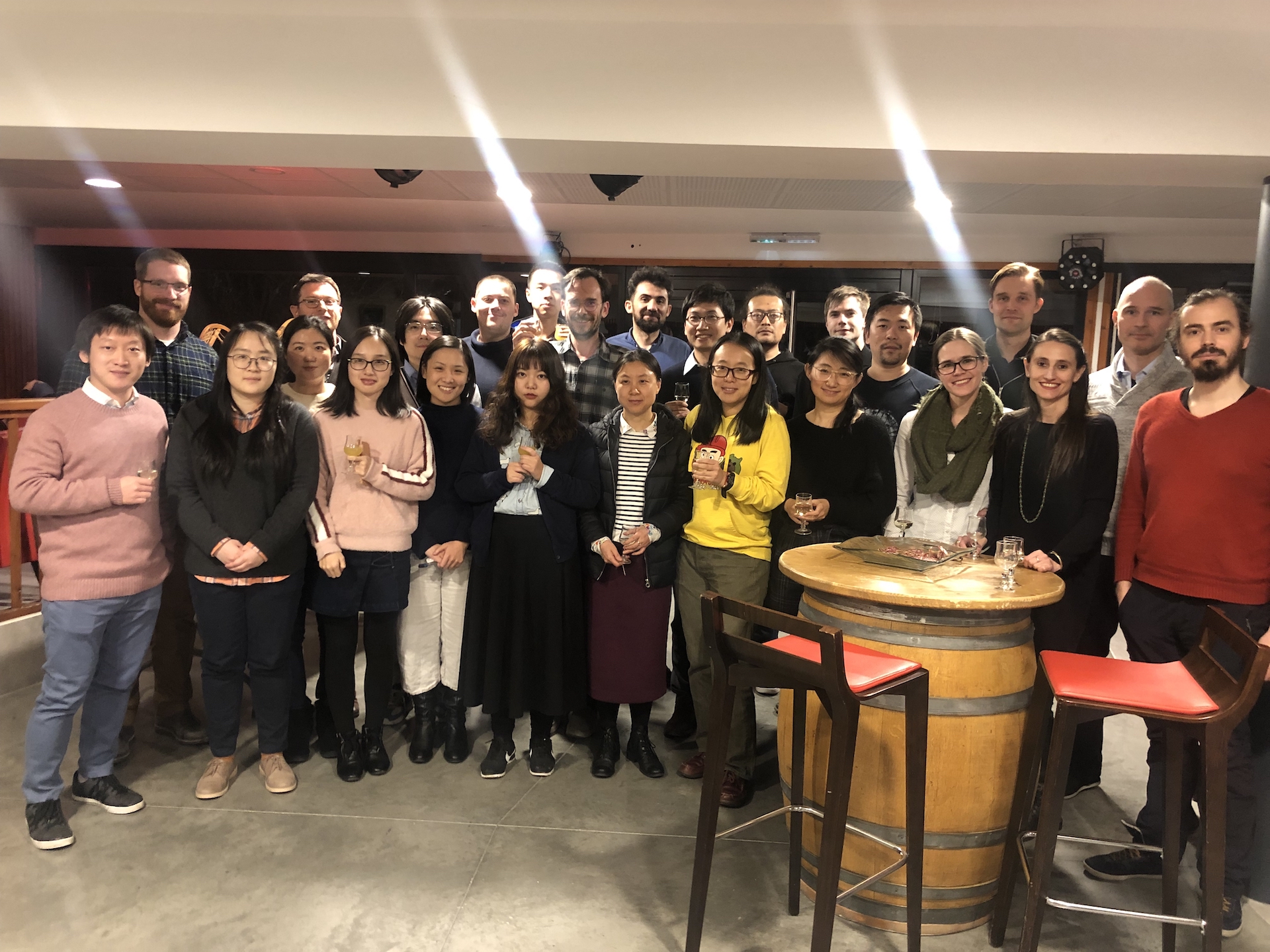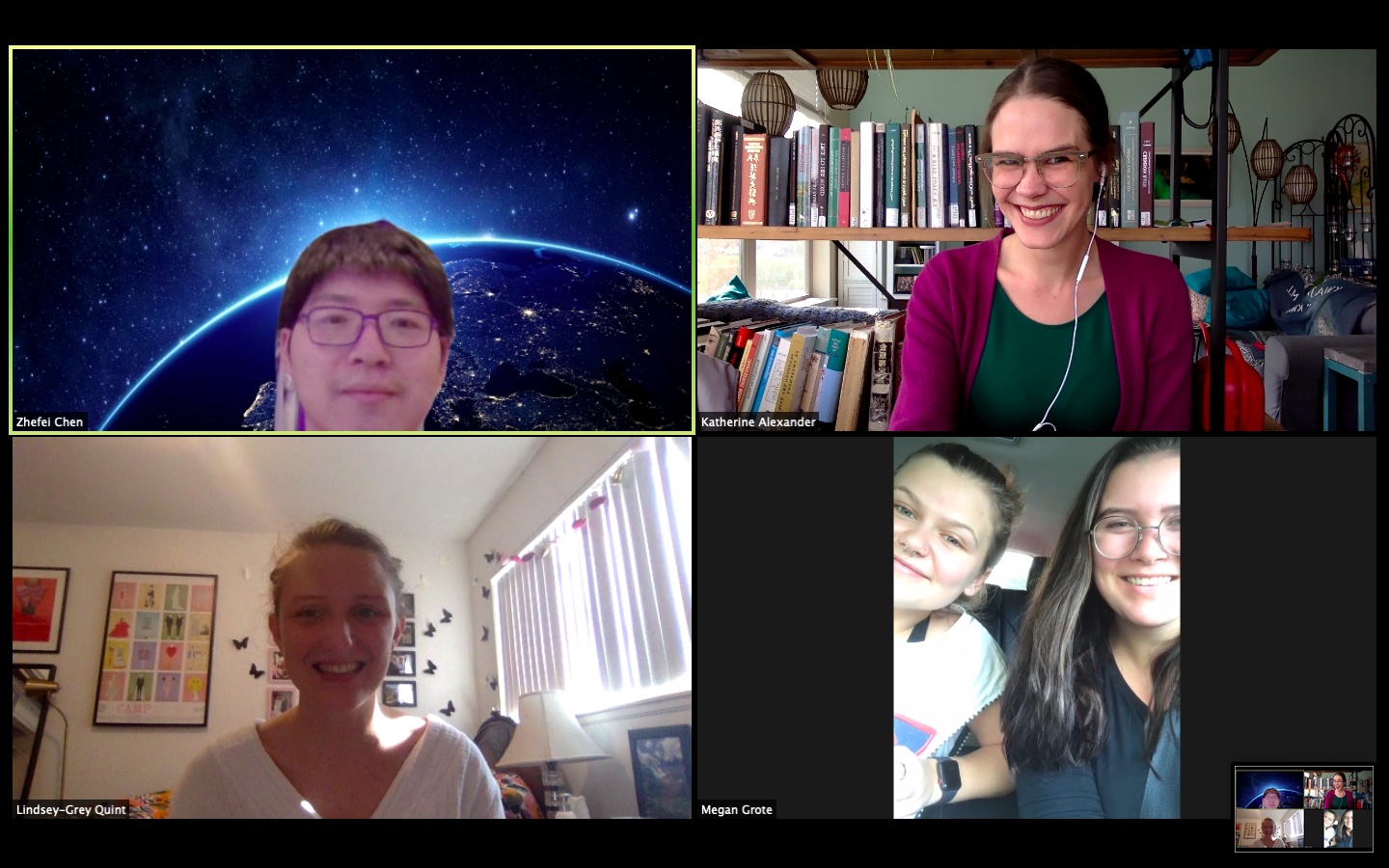crta:About: Difference between revisions
(→Events) |
|||
| Line 16: | Line 16: | ||
== Events == | == Events == | ||
=== UPCOMING!: CRTA In-person workshop on reading late imperial Chinese religious texts, Paris, January 5-8, 2023=== | |||
With the theme "Outliers and oddities: Identifying, contextualizing and questioning religious texts’ identity" we read some texts and develop the database. Supported by [https://frogbear.org Frogbear] and the [https://en.unistra.fr/research/interdisciplinary-thematic-institutes-iti/history-sociology-archaeology-and-anthropology-of-religions-hisaar Université de Strasbourg] | |||
=== Frogbear Online Workshop, May, 2022 === | === Frogbear Online Workshop, May, 2022 === | ||
Revision as of 14:55, 11 December 2022
Aims and Structure
The Chinese Religious Text Authority aims to connect bibliographic information across collections, archives, and private libraries in order to map out detailed webs of relationships among producers, publishers, and distributors of religious texts. In this first phase of the project, we focus on a corpus of pre-1949 Chinese Religious texts included in major reprint collections. The data generated from this open-access, international, collaborative project has the potential to reveal formerly undiscovered associations.
CRTA was founded in December 2018. We are grateful to Simon Wiles for help with the technical infrastructure and hosting the wiki. CRTA has received and is grateful for support from FROGBEAR, the University of Colorado, and the Ecole pratique des hautes études (EPHE, PSL).
Steering Committee:
- Katherine Alexander
- Marcus Bingenheimer 馬德偉
- Daniela Campo
- Xinyu Cao 曹新宇
- Philip Clart 柯若樸
- Vincent Goossaert
- Gregory Scott
- Huayan Wang
Events
UPCOMING!: CRTA In-person workshop on reading late imperial Chinese religious texts, Paris, January 5-8, 2023
With the theme "Outliers and oddities: Identifying, contextualizing and questioning religious texts’ identity" we read some texts and develop the database. Supported by Frogbear and the Université de Strasbourg
Frogbear Online Workshop, May, 2022
We met on Zoom May 26, 27, 31, and June 2, to discuss baojuan 寶卷 texts and how to enable bibliographic access to baojuan in CRTA. For details see: Frogbear Website
Frogbear Online Workshop, June, 2021
We met on Zoom June 1st, 3rd, 8th, 10th to discuss Chinese spirit writing and how to enable bibliographic access to spirit writing texts in CRTA. For details see: Frogbear Website
Online Workshop, May 14th, 2021
This event took place over five hours and involved a number of users working collaboratively.
Online Workshop, October 17th, 2020
This event involved contributors from around the world being trained on the resource and participating on a day-long "hackathon"-style workshop creating and editing entries.
Schedule:
| CEST (UTC-2) Paris | CST (UTC+8) Beijing | EDT (UTC-4) New York | Activity |
|---|---|---|---|
| 9-10:30am | 3 - 4:30pm | X | Europe/East Asia info session and introduction to entry creation |
| 11am - 2pm | 5pm - 8pm | X | Collaborative editing time with chat available for troubleshooting and help |
| 2-3pm | 8-9pm | X | Break |
| 3-5pm | 9-11pm | 9-11am | Reserved for CRTA Steering Committee Meeting |
| 5-6pm | X | 11-12pm | Break |
| 6-7:30pm | X | 12-1:30pm | North America info session and introduction to entry creation |
| 8-11pm | X | 2pm-5pm | Collaborative editing time with chat available for troubleshooting and help |
Workshop, Aussois France, December 15th-19th, 2019
Supported by generous funding from FROGBEAR (From the Ground Up: Buddhism and East Asian Religions) and by Vincent Goossaert’s research funds at EPHE., this workshop focused on training early career scholars in the reading and analysis of a large range of late imperial Chinese religious texts.
After a one-day seminar in Paris, which about half the group of early career scholars were able to attend, we went to the CNRS Center in Aussois where we stayed, ate together and used our seminar room morning to night for four days. We first explained the CRTA project, its aims and philosophy, the database structure. Then the six instructors (Marcus Bingenheimer, Daniela Campo, Katherine Alexander, Huayan Wang, Gregory Scott and Vincent Goossaert) each directed a three-hour session on a specific genre of religious texts, with different pedagogical approaches, but always involving the active participation of everyone present at the workshop, instructors and participants alike.
Collaboration with Research Assistants
Spring 2022
Funded by a research grant of the section des sciences religieuses, EPHE, PSL, User:ZhangWanrong has created data for the whole Sandong shiyi - K.
Summer 2021
Funded by a Team Grant from the University of Colorado's Undergraduate Research Opportunity Program, intrepid research assistants Qihan Cai, Julien King, and Zoe Stewart are working with Katherine Alexander to create and edit entries within Minjian baojuan - J and Waseda University Library - WUL.
Spring 2021
Funded by a personal research allowance, from February to April 2021 two undergraduate research assistants from the University of Manchester, ViktoriaBarillova and CharlotteBrown worked with Gregory Adam Scott to complete entries from the corpus of modern Chinese Buddhist periodicals, the Minguo Fojiao qikan wenxian jicheng - MFQ. The team created new 55 entries, collected in the Buddhist Periodicals category page.
Summer 2020
Funded by a Team Grant from the University of Colorado's Undergraduate Research Opportunity Program, intrepid research assistants Zhefei Chen, Megan Grote, Lindsey Quint, and Bella Stephens worked with Katherine Alexander to create over 200 entries within Minjian baojuan - J.

